AN UNCERTAINTY IN NATURE
One early September day in 2020, as Covid-19 and wildfires raged north of us, the sky turned sickly. The bees were gone.

For a few days, at least until the onslaughts began, I was besotted by the scent of a million flowers dotting our kumquat tree. The ferocity of the fragrance addled my brain. I called out to my husband.
“Open the window,” I hollered. “You must smell this!”
He opened the window to inhale the bouquet of the kumquat flowers.
“We are going to have a huge crop this fall,” I said. But who knew if all these flowers would bear fruit? Not all our dreams became reality. So too in nature.
By mid-August, I’d begun noticing a profusion of flowers in our kumquat tree. Thanks to the lockdown, I was pottering around our garden several times a day. I suppose the very act of ambling about in the yard, stepping cautiously so I didn’t crush ant hills, hovering over the plants, repotting, weeding, deadheading, or, sometimes, simply savoring the fresh air in the yard, had not gone unnoticed or unrewarded. If harvest were a form of speech, our seedless black grapes shouted by the big bowlfuls all of July and August.
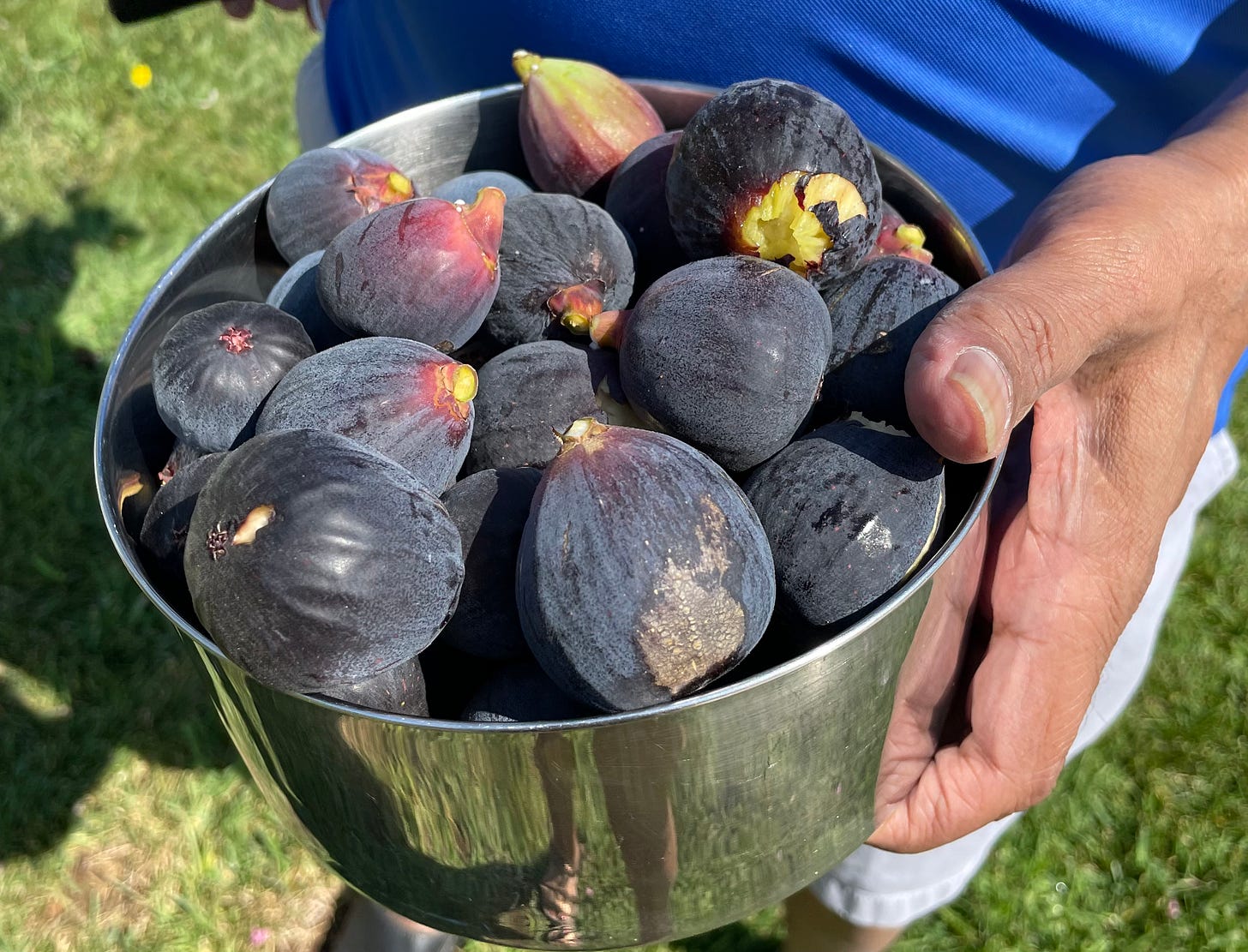
So did all 248 figs in our front yard, a few weeks after I tugged at the uninvited crab grass, buttercup, and wood sorrel rambling around the trunk of the tree. In contrast to our figs and grapes, our pomegranates were somewhat taciturn. We harvested only six of these but this year’s crop was sweeter than last year’s. To the right of the pomegranate tree, the persimmons began flushing into this nice yellow-orange while the oranges were still an asparagus green.
The color of our bounteous garden planted hope back into our lives at a time when the nation was racked by loss and vitriol. The creatures began sensing it too. There was so much buzz. First it was the wisteria beckoning the bees starting in late July; then after mid-August as the heat rose to a broil, the scent of those kumquat blossoms punched the air.
Like those bees, I too felt the pull even though I didn’t own some 170 odorant receptors. Nevertheless the aroma stung my nostrils like the first bite into a kumquat. Every day as I went about yard work, I tiptoed around the bees. God’s creations needed quiet and peace to work their magic. When I watched them from behind the patio door, it was as if these winged creatures were flying a regular shuttle service inland, like those pilgrimage flights to Mecca. By the time the Bee-fest ended, a ring of white petals dusted the pavers in a concentric circle around our kumquat tree. This would have gone on for weeks had something not arrested all further activity.
One early September day as wildfires raged hours away from us, the skies turned a sickly, ominous peach. That day, no one in the San Francisco Bay Area could tell sunrise from sunset. Overnight, the bees were gone. They had sensed something. With them disappeared the two bunnies that chased each other on our lawn, the squirrels that used to dash about the fence and the geckos that darted between lavender, jasmine and morning glory. All, everything, gone. Could something be more still than still life?
I’ve heard that human life would suffer greatly if bees didn’t buzz, pollinate, sting and flee. Their success and joy diffused into our lives and we had much to learn from them about efficiency, cooperation, and coexistence.
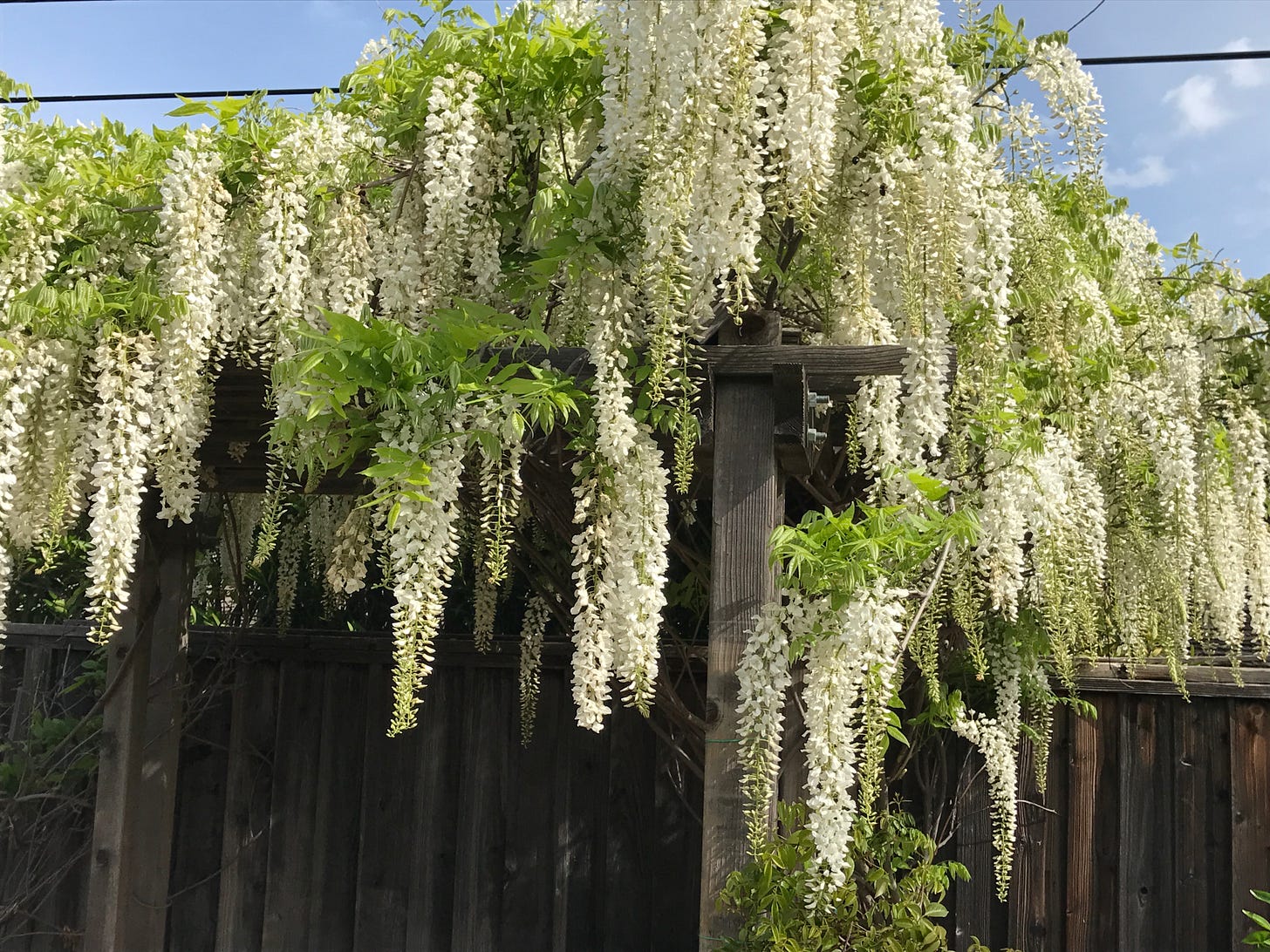
“The bees were an ideal society, a small paradise among chaos,” writes Christy Lefteri in The Beekeeper of Aleppo, a novel that describes the devastation and loss in the Syrian war. That week of the wildfires, it seemed that the barrenness seeping through the novel had poured into our backyard.
Five days later, the air quality improved. Sunlight filtered into living things. I saw the first sparrow dive down into our lawn. Soon, a raven waddled across our driveway. In the backyard, I spotted movement in the bushes. I didn’t anymore hear the din of a rabble of bees, but a lone bee dashed out of the kumquat tree. It was impossible to not be hopeful again.

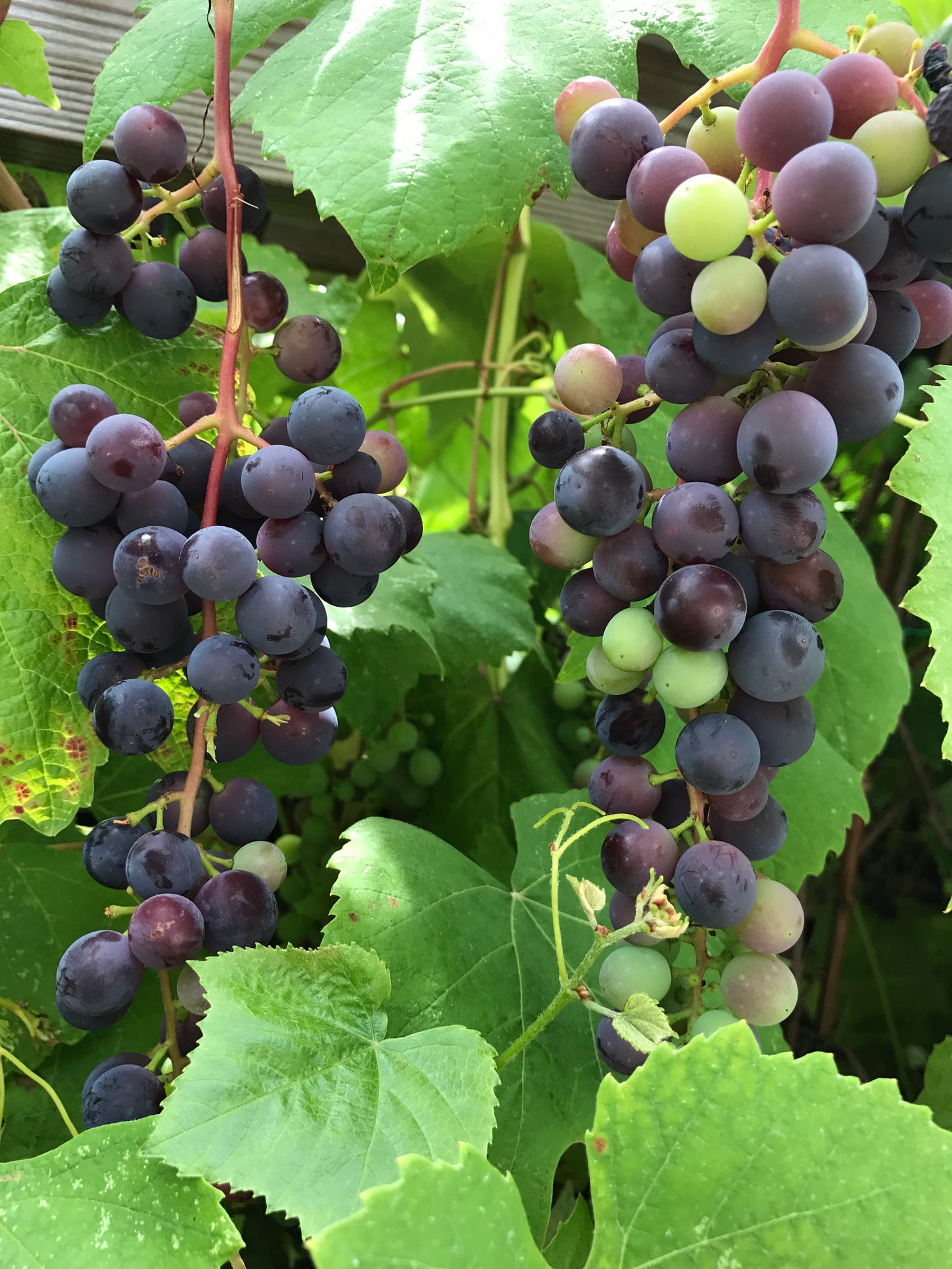
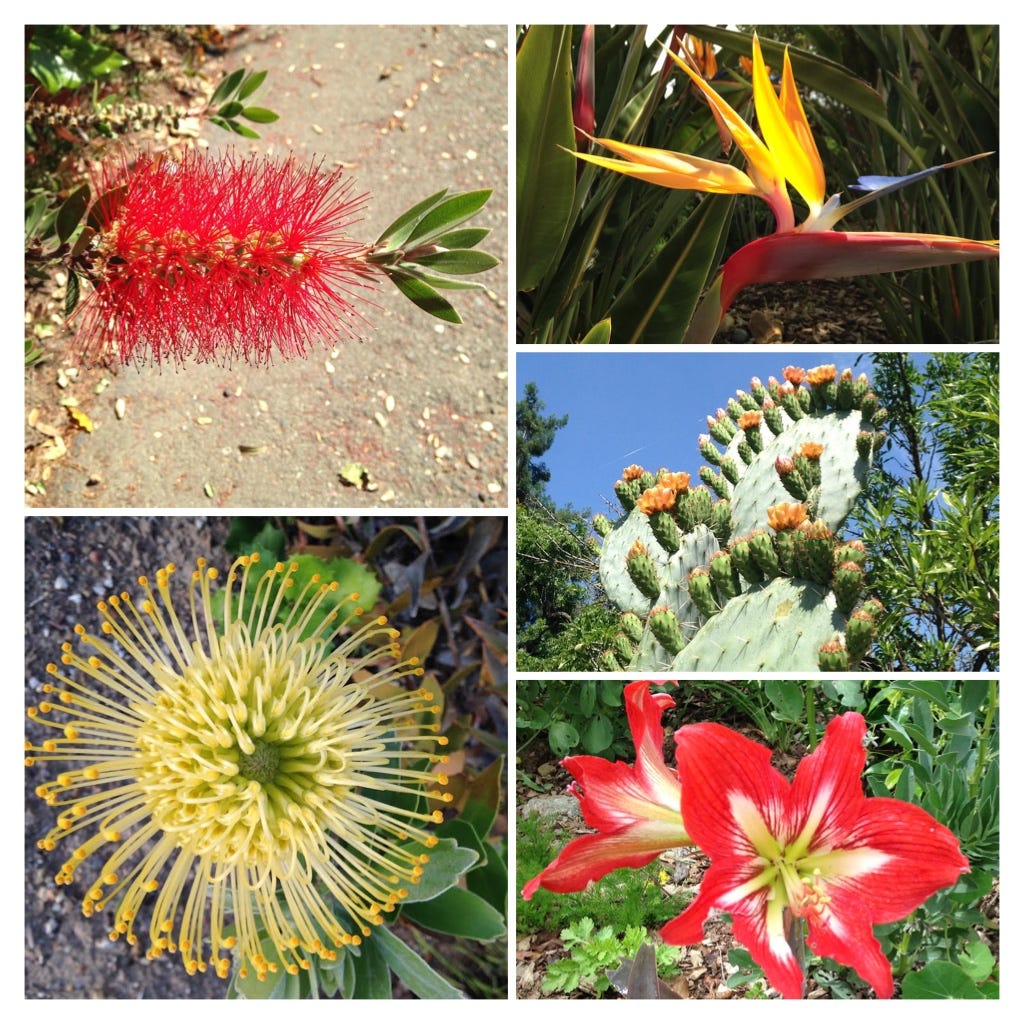
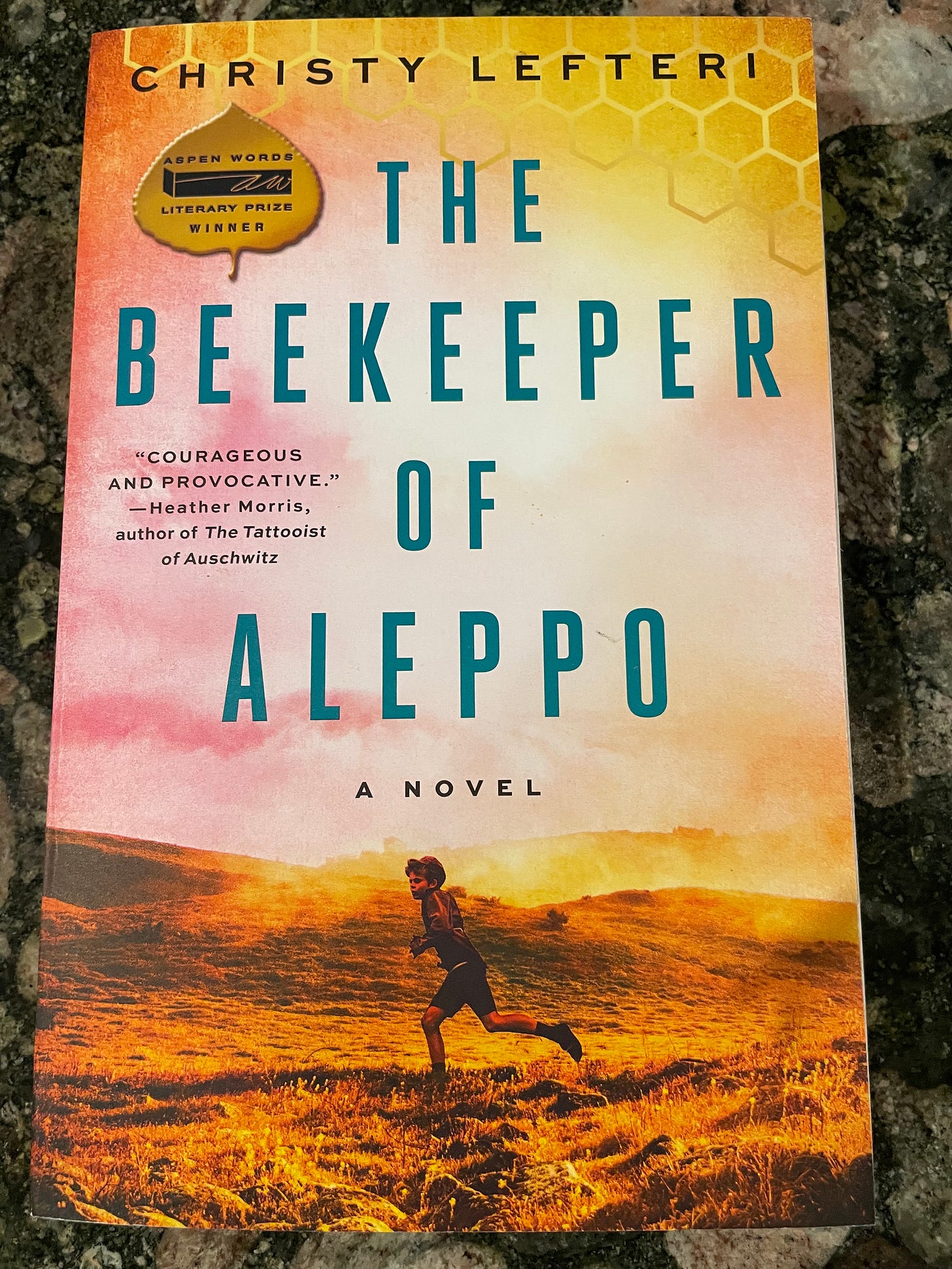
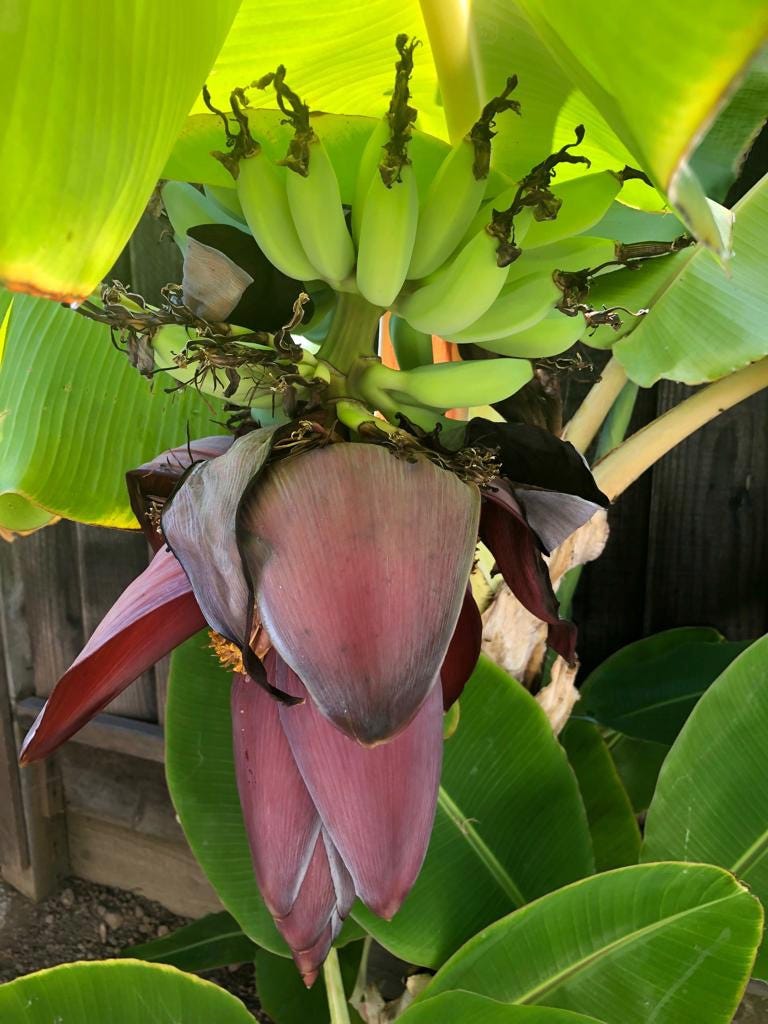
Love this piece! Your close examination of the operations of nature reminds me of Annie Dillard in "Pilgrim at Tinker Creek." Alas, the creatures that never left my garden despite the smoke and poor air quality were roof rats.
You own and have captured a piece of paradise in your backyard. This essay is from last summer? Hope this year was better! Beautifully picturized and penned!